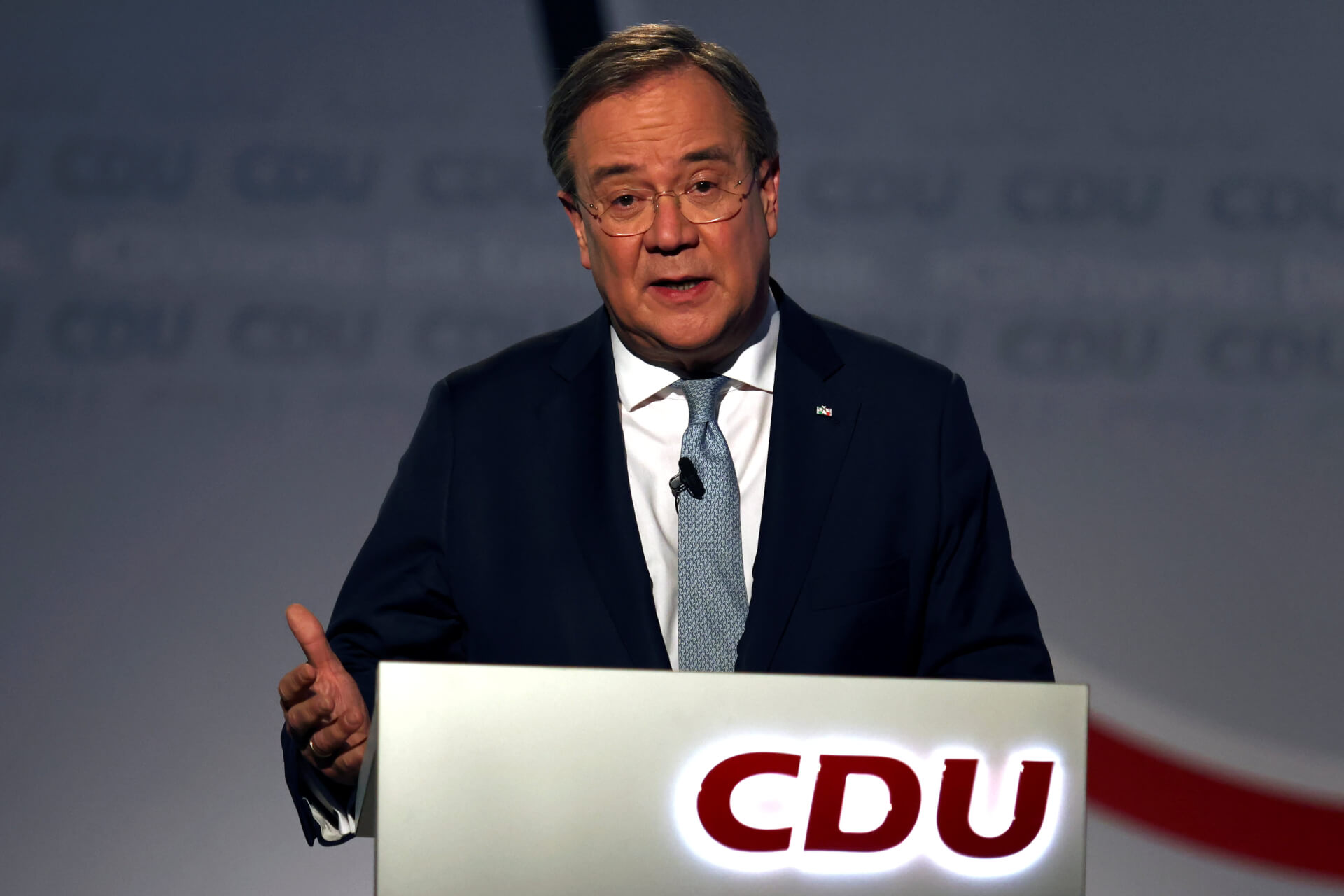On Saturday, German Chancellor Angela Merkel’s party, the Christian Democratic Union (CDU), elected Armin Laschet, the pro-immigrant, pro-European Union centrist premier of the North Rhine-Westphalia state, as the party’s new chief. Laschet stood against Norbert Röttgen, who was eliminated in the previous round, and Friedrich Merz, Merkel’s arch-rival and the most conservative candidate in the intra-party elections, who Laschet defeated by 521 votes to 466.
Merkel has retained her position as the Chief of CDU for over twenty years now. In 2000, 897 out of 935 members of the party voted to bring Merkel into power, making her the first woman to lead a major political party in Germany. Five years later, she was elected as Chancellor. Her tenure has successfully survived several domestic and international crises—from the 2008 financial crisis to the 2015 migrant crisis, Merkel has retained her political influence in German politics. However, since 2017, with the rising popularity of the far-right Alternative for Germany (AfD) party, the CDU has been in a consistent downfall. Even its sister party, the Christian Social Union (CSU), faced major losses in state elections, with groups like the AfD increasingly expanding their influence in German politics.
This prompted Merkel’s 2018 declaration that she would not stand for the position of CDU Chief or Chancellor in the 2021 elections. Speaking at a press conference, she said, “I will not be seeking any political post after my term ends.” Taking “full responsibility” for the growing unpopularity of her party, she stated, “As chancellor and leader of the CDU I’m politically responsible for everything, for successes and failures … When people are telling us what they think of how the government was formed and what they think of our work during the first seven months of this parliament … then it is a clear signal that things can’t carry on as they are … The time has come to open a new chapter.”
Laschet now replaces Annegret Kramp-Karrenbauer (AKK), who took over as the Merkel’s successor as the chief of the CDU in 2018. However, last year, AKK stepped down after facing significant backlash following a controversial election in the state of Thuringia, where the CDU formed a coalition with the AfD, thereby going back on its promise to never work with the far-right parties in Germany. Several party members and the public considered this as indicative of the growing fragmentation in the CDU and the weak leadership of AKK.
However, this does not cement his position as a candidate for the upcoming federal elections, which are scheduled to be conducted in September this year. He continues to face competition from Jens Spahn, the country’s Health Minister, and Markus Söder, a leader from the Christian Social Union, the CDU’s ally-party, both of whom could still be pushed as the CDU/CSU coalition’s candidate. However, Laschet believes that a decision to deviate from status-quo, according to which the CDU’s chief is traditionally chosen as the candidate for the CDU/CSU coalition, will “send exactly the wrong signal”. However, during his victory speech, he said, “I want to do everything so that we can stick together through the year … and then make sure that the next chancellor in the federal elections will be from the [CDU/CSU] union.”
His aspiration to stand for the federal elections faces further opposition after a poll conducted by Munich-based Focus magazine showed that merely 12.1% Germans support Laschet as a successor for Merkel. This is primarily due to his handling of the COVID-19 pandemic, during which his vociferous support for loosening lockdown restrictions was met with significant opposition. Laschet’s election also faces opposition from the coalition’s rival, AfD, who believe that this indicates a continuation of Merkel’s centrist policies.
Instead, 43% of the German population support Markus Söder for this position. Although the CSU does not traditionally compete with the CDU for the Chancellor position, Soder has become increasingly popular following his successful handling of the COVID-19 pandemic in Bavaria, in great part due to his decision to implement timely and strict lockdowns. Spahn, on the other hand, secured the support of merely 8.7% of the voters.
CDU Elects Laschet as New Party Leader and Candidate to Replace Merkel in 2021 Election
After months of controversy, in preparation for the upcoming federal elections, the Christian Democratic Union concluded its intra-party elections and voted for Armin Laschet as the party's chief.
January 18, 2021

Armin Laschet, the newly elected chief of the Christian Democratic Union. SOURCE: GETTY IMAGES
